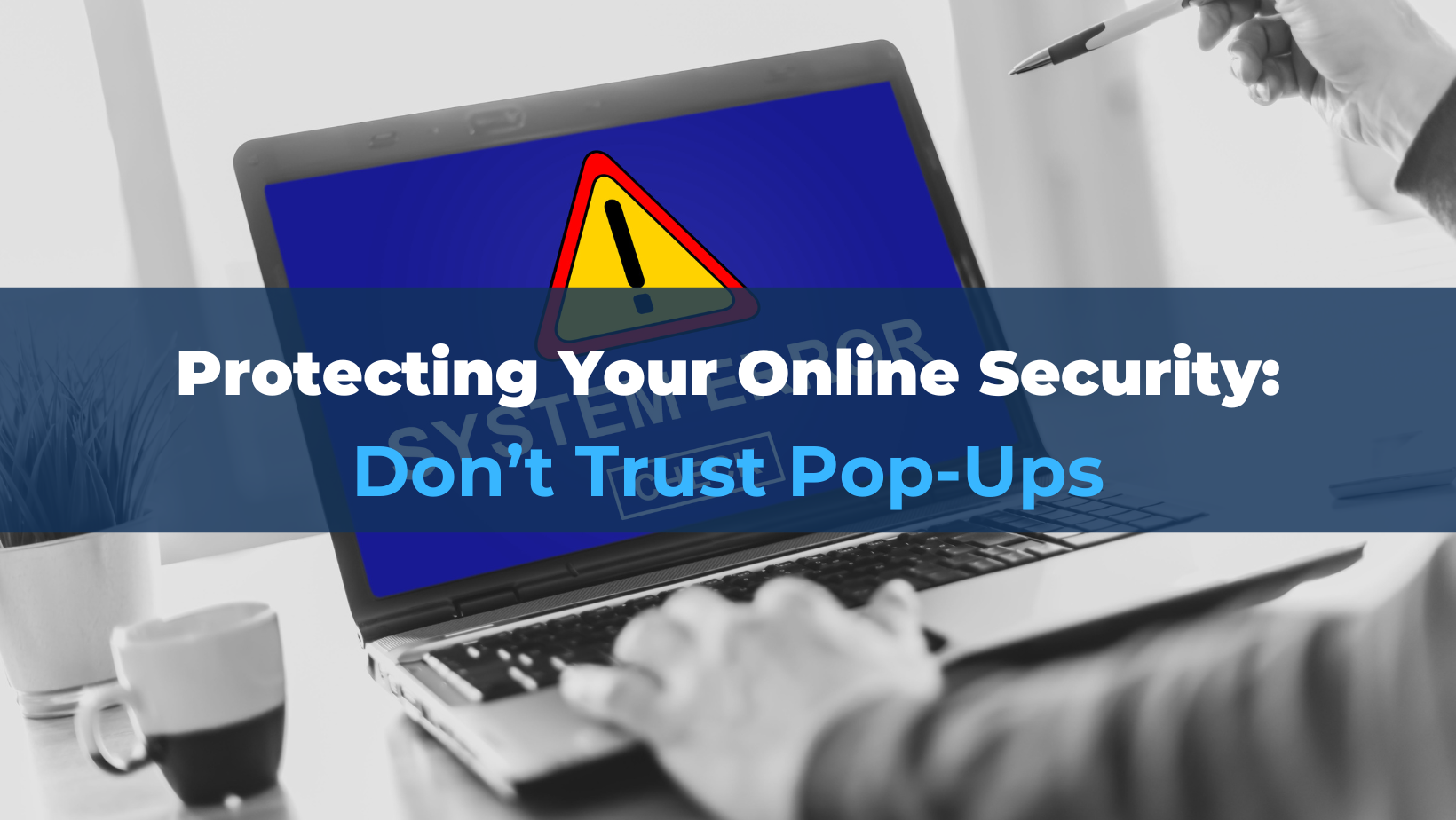Protecting Your Online Security: Don't Trust Pop-ups
If you’re known to dabble in a little online browsing, odds are you’ve encountered a pop-up once or twice. There are times when a user may think, “Wow, that’s a great deal!” and click on a pop-up. To those users: put down the mouse. Why? That pop-up could be malicious or dangerous.

There used to be a time when malicious pop-ups were only on questionable sites, but those days are gone. Hackers are smart and develop ways to inject malicious malware into pop-ups and online advertisements - even on the most trusted sites.
One of the most common attacks we see occurs when you visit a site and a pop-up appears that says, “Your computer is infected! Download our antivirus now!” If you click on this, a bogus virus scan will start. After the “scan” completes, you’ll be asked to pay for a full-version of the software or to call a helpline to connect with a support representative.
Spoiler alert: The software is not real and the fake support representative will take control of your computer to try and “fix” the issue, but end up causing more damage.
How to prevent pop-up attacks
Although hackers are smart, you can be smarter. Here are some tips to protect yourself from these types of attacks:
-
Avoid Clicking on Pop-ups: The simplest and most effective advice is to refrain from clicking on pop-ups, especially those offering unsolicited deals or claiming your device is compromised.
-
Regularly Update Your Operating System: Keep your operating system up-to-date. Don't postpone or snooze updates, as they often include crucial security patches that can fortify your system against potential threats.
-
Use Web-Filtering Software: Employ web-filtering software to receive warnings before accessing potentially harmful sites. This extra layer of protection can act as a shield, providing an additional barrier against malicious content.
We understand the importance of staying informed and educated about online security. To further enhance your knowledge, we recommend exploring additional resources from reputable sources.
- Cyber Aware: The UK government's Cyber Aware campaign offers practical advice on how to protect yourself from cyber threats.
- Federal Trade Commission (FTC) - Online Privacy and Security: The FTC provides a wealth of information on various topics, including online security and protecting yourself from scams.
- Stay Safe Online: This National Cyber Security Alliance initiative provides valuable insights and resources to help you stay safe online.
Remember, these attacks are only successful if we fall for them. Stay alert and be cautious!
« Return to "Blog"
